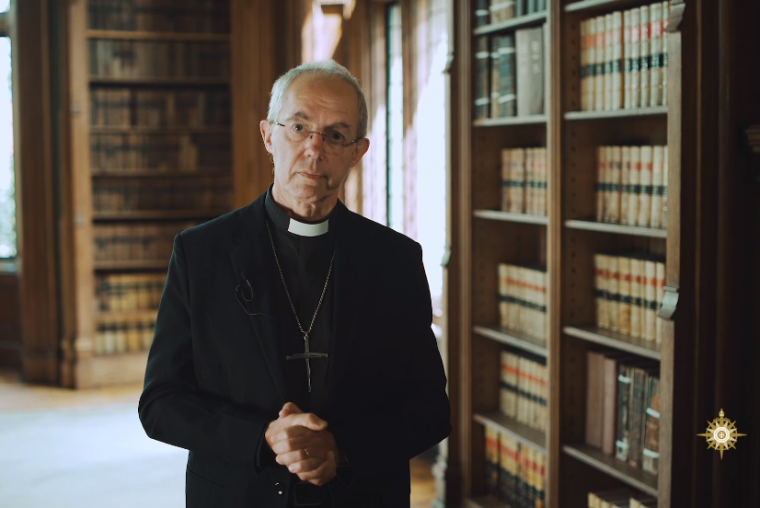Archbishop warns against 'unsafe' assisted suicide proposals

The Archbishop of Canterbury, Justin Welby, has told the House of Lords today that Baroness Meacher's Assisted Dying Bill is "unsafe".
During the debate after the Second Reading of her Private Member's Bill, he told peers: "Sadly, I believe this Bill to be unsafe. As a curate and parish priest I spent time with the dying, the sick and the bereaved. I still do."
He stressed "the sad truth" that "not all people are perfect, not all families are happy, not everyone is kind and compassionate".
"No amount of safeguards can perfect the human heart, no amount of regulation can make a relative kinder or a doctor infallible.
"No amount of reassurance can make a vulnerable or disabled person feel equally safe, equally valued, if the law is changed in this way," he said.
The former Archbishop of Canterbury, Lord Carey, spoke in favour of the Bill. In opposing assisted dying, the Church of England's House of Bishops was "out of step with the vast majority of our nation, which includes many of its own membership", he claimed.
The Bishop of Carlisle, James Newcombe, the CofE's lead bishop on medical ethics, spoke of "the need to put our time, effort, and resources into improving palliative care, rather than promoting suicide for those who are terminally ill".
He also highlighted "the doctor-patient relationship which would be affected so substantially by any change to the present law".
"Many of us will have been struck by a recent letter to The Daily Telegraph from a group of young doctors describing themselves as 'the palliative care consultants of the next generation across the country'," he said.
The doctors wrote of the danger of "a seismic shift in the way in which patients are cared for" and argued that allowing assisted dying "would fundamentally alter the dynamic in the patient-doctor relationship and destroy the trust that is so essential to our work", Bishop Newcombe said.
In her speech introducing the debate, Baroness Meacher read out a letter from the former Labour Minister, Lord Field of Birkenhead, revealing that he has a terminal illness. He wrote that he had changed his mind over assisted dying and was now in favour of it.
Baroness Meacher declared her interest in the Bill as "the unpaid chair of Dignity in Dying".
Lord Alton of Liverpool made the point that 62 hours of parliamentary time had been devoted to the issue of assisted dying over the past 20 years.
"Notwithstanding the good intentions of those who produce these recurring Bills", the same unanswered questions remain about "the risks to vulnerable people" and "the compromising of medical ethics", he said.
Bills at Second Reading in the House of Lords do not conventionally go to a vote, so the Assisted Dying Bill proceeds to committee stage where a select group of peers will scrutinise it before it goes to Report Stage before the full House.
The Bill would need to win a majority at its Third Reading if it is to go before MPs, a spokesman for the Christian Medical Fellowship said.
According to The Daily Telegraph, Prime Minister Boris Johnson has indicated he is against any change in the law against assisted suicide.











